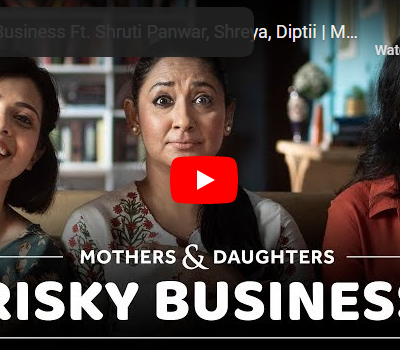Videos
When a literary canon is created and upheld, which are the voices that are amplified and which are the voices that are lost in the fray? Can marginalised bodies and experiences truly find representation in such a canon?
In a society where the very pursuit of erotic pleasure is often stigmatised, when sexual desires are often seen through the narrow lenses of penetrative sex and as means for reproduction, it is considered radical for an older woman who is already the mother of adult children to seek pleasure.
If feminism is about fighting for equality, then how can we ensure that our feminism is truly inclusive and equal? Does it feature only a certain kind of voice or experience, and not take into account the multiple axes of oppression that another group of people may face?
Spirituality often means different things to different people – some may dismiss it, some may link it to faith or religion, while some may simply experience it as a personal moment of connection. And spirituality is just that, a moment in which one feels ‘beyond’ oneself.
Is a moustache synonymous with the socially established understanding of what makes a ‘man’, is it what marks the degree of manliness, or rather, the degree of male privilege, and is it something that defines the kind of relationships men share with each other?
An Indian joint family shares spaces where lives and narratives overlap and privacy is stymied. Acts of intimacy, pleasure, and sexual exploration become difficult to pursue, and both privacy and sexual fulfillment become a much sought-after luxury.
Our sexuality is often in flux – being manoeuvred (sometimes in ways we cannot control) by the crashing waves of societal expectations, circumstances, and our own choices and experiences. But the world continues to uphold a fixed, rigid idea of sexuality, and continues to confine us within this idea, and therein lies the conflict.
“Savita Bhabhi” – a seemingly innocuous name, but also one that is the subject of countless budding fantasies: she of the eponymous erotic comic strip.
What follows, in the short film Chutney, is a conversation – full of eerie, evocative storytelling – which not just sheds light on the class hierarchies in the middle to upper-middle class Indian household, but also the anxieties surrounding sexuality and sexual repression within it.
In Pixar’s short film Purl, a pink ball of yarn – a stand-in for anyone who’s ‘different’ – is faced with this dilemma in a workplace context (the analogy would work in other contexts as well).
The Internet is as public a space as any other – fraught with its own set of complexities – and the stigmas and moral judgments that plague our immediate physical environment often permeate into it, whether subconsciously or not.
Sometimes, life may surprise us with a second chance, a second turn at making the right choice, and sometimes it may not.
The process of connecting with another person, opening up to them, and getting close enough to build an intimate relationship is fraught with complexities and grey-areas, which often has a marked impact on how we interact with that person and how we choose to conduct ourselves around them.
The short film, “#Purana Pyaar”, by Gorilla Shorts, starring veteran actors Mohan Agashe and Lillette Dubey, evocatively highlights how age is no bar when it comes to love and desire.
How does one negotiate the “delicate and complex” terrain of giving, receiving and respecting consent, and safely and effectively express sexual desire?















